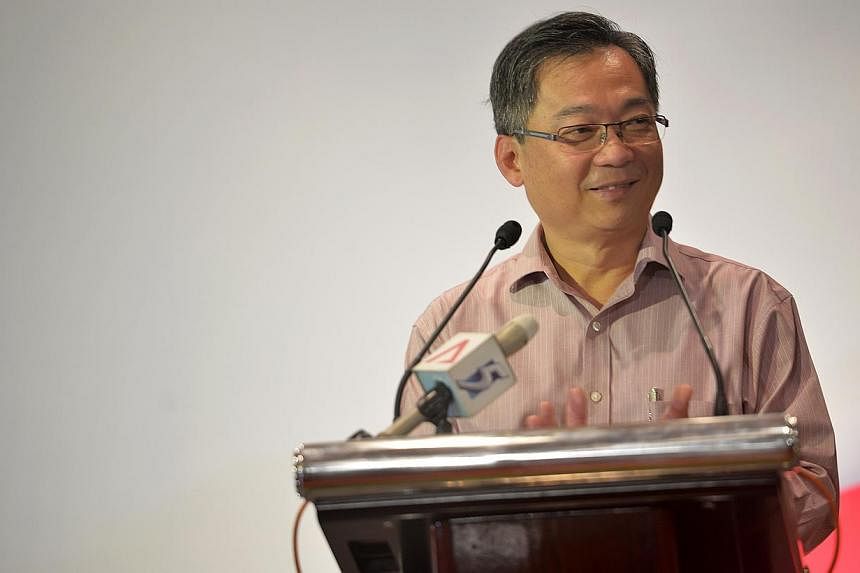SINGAPORE - Tecnological advances can bring real benefits to patient care both in terms of better patient outcomes as well as cost savings, said Health Minister Gan Kim Yong.
Opening the Healthcare Information and Management Systems Society (HIMSS) AsiaPac14 digital healthcare week at Marina Bay Sands on Monday, Mr Gan said adopting new technology can make a difference in healthcare services.
A study in the United States last year found that doctors were wasting an average of 46 minutes a day on outdated communications technologies, such as the lack of Wi-fi and inefficient pager systems.
Mr Gan said this not only cost the average hospital almost US$1 million a year, but it significantly reduces the time doctors spend with their patients.
Quoting another US study done in 2012, he said: "By running patient data through an artificial intelligence framework, doctors were able to find the right treatments faster and reduce unnecessary patient visits, while obtaining about 50 per cent improvement in outcome for roughly half the cost."
Recognising the importance of information technology (IT) in healthcare, Singapore has drawn up an IT roadmap.
"The IT masterplan emphasises focus on the use of analytics to better understand our population and allows our healthcare services to be more targetted," he said.
One example, he said, is disease prevention programmes, which can be provided to people known to have a chronic medical problem.
Singapore already has one of the most advanced public healthcare systems in terms of use of electronic medical records, with almost the entire system linked in.
This means that patients going from one public institute to another is assured that his health history and status can be assessed by whichever doctor is currently treating him.


